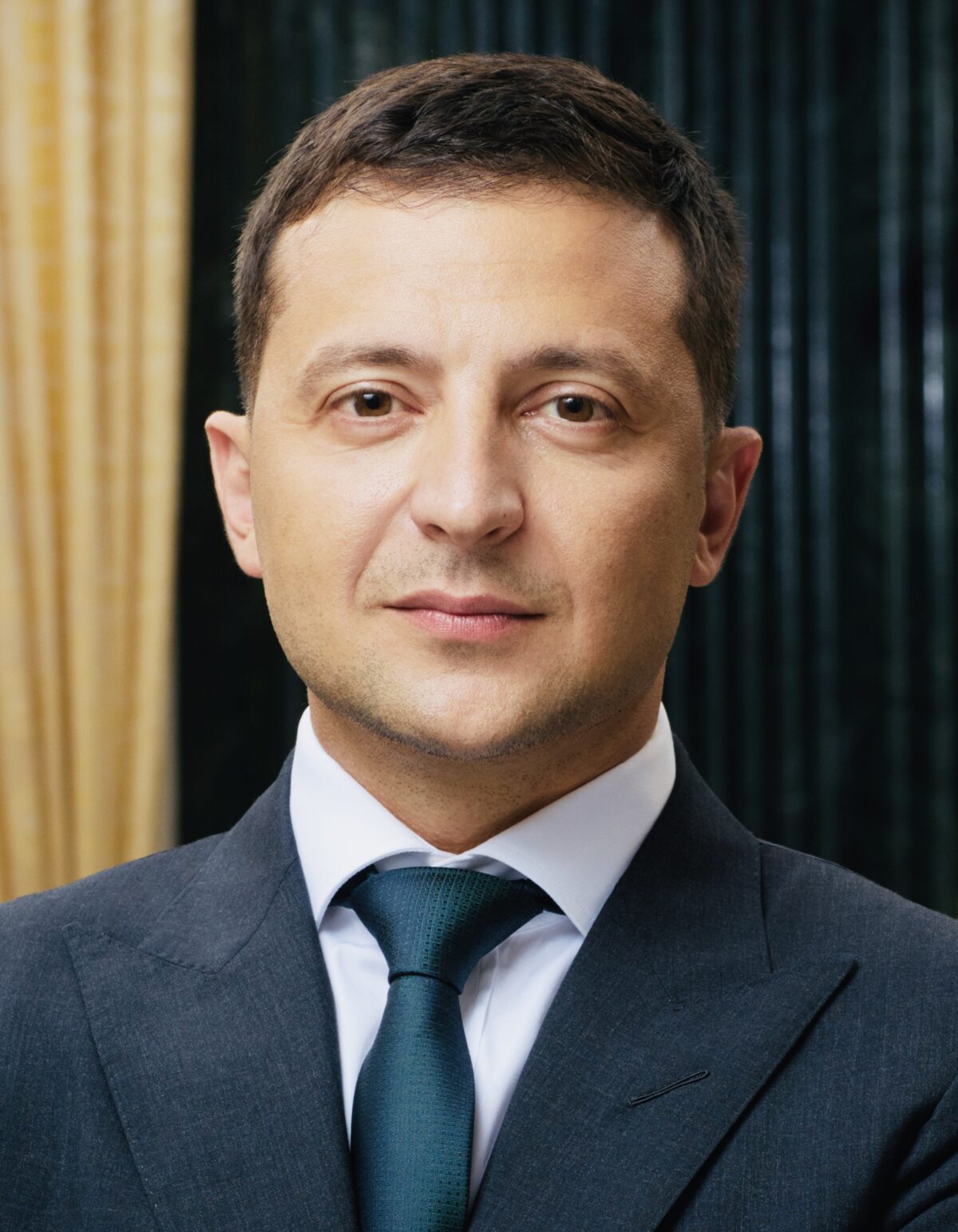Israel should exercise the greatest of caution and discretion as tensions between Russia and Ukraine grow over their increasingly bitter border dispute. Under no circumstances should Israel allow itself to be harpooned into this potentially destabilizing and dangerous conflict currently simmering in eastern Ukraine.
Ukraine, a former republic of the now-defunct Soviet Union, declared independence in 1991. In 2014, Russia invaded and annexed the Crimea peninsula, which the Soviet Union had transferred to the Ukraine in 1954. Russia also threw its support behind pro-Russian rebels seeking to secede in two breakaway regions near the Russian border.
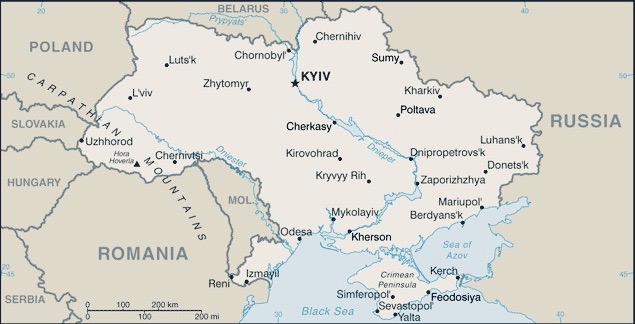
These events were set into motion following the overthrow of the pro-Russian Ukrainian president, Viktor Yanukovych, and Ukraine’s earlier decision to seek membership in the pro-Western defence alliance formally known as the North Atlantic Treaty Organization (NATO).
President Vladimir Putin, in part, justified Russia’s seizure of Crimea as a necessity to safeguard minorities, including Jews, from Ukrainian “fascists.”
In recent weeks, Russia has massed some 100,000 troops along the Ukrainian frontier, prompting speculation that Putin may order a full-blown invasion of Ukraine.
Israel, in the face of these ominous developments, has wisely kept a low profile. Israel should antagonize neither Ukraine, a middle power with a vital and historic Jewish community, nor especially Russia, a superpower whose activities in the Middle East impinge on Israel’s national security interests.
But at a recent event marking the 30th anniversary of the establishment of Israel’s diplomatic relations with Ukraine, the date of which formally falls on December 26, the Ukrainian ambassador to Israel, Yevgen Korniychuk, made an unsettling comment that the Israeli government should treat extremely carefully.

At the ceremony on December 16, Ze’ev Elkin — an Israeli cabinet minister who was born and raised in Ukraine — voiced the hope that Ukrainian President Volodymyr Zelensky — the first Jewish person to hold this position — would open a trade and technology branch of Ukraine’s embassy in Jerusalem.
Israel President Issac Herzog raised this issue with Zelensky when he visited Kiev this past October to attend a ceremony marking the 80th anniversary of the Babi Yar massacre, one of the worst Nazi atrocities during the Holocaust.
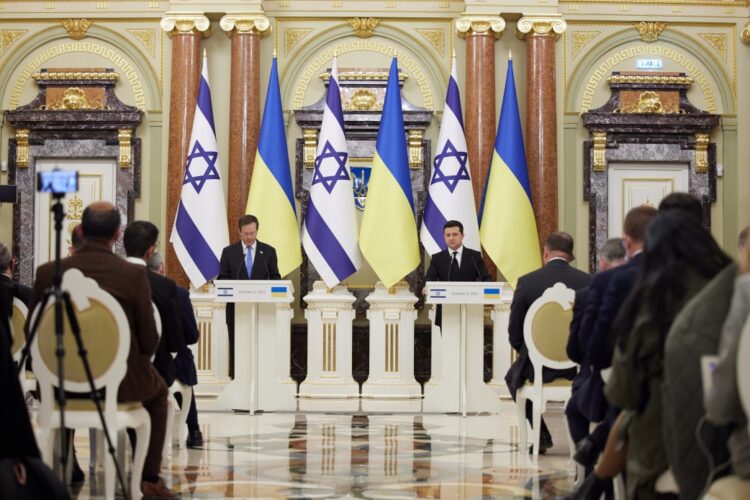
For the past few years, Israel has been trying to persuade foreign countries to move their embassies in Tel Aviv to Jerusalem, Israel’s capital. Only the United States and Guatemala have done so, but several other nations, including Australia, Brazil and the Czech Republic, have opened offices in Jerusalem.
In the wake of Elkin’s remarks, Korniychuk said that Ukraine could recognize Jerusalem as Israel’s “one and only capital” within months, if not sooner, and open a branch of its embassy there, as soon as he received “official permission” from the Ukrainian government.
Korniychuk added that Ukraine requires something in return. Without delving into details, he said that Israel would have to meet certain preconditions in its security and defence relationship with Ukraine.
In recent years, Ukraine has shown an interest in buying Israeli dual-use equipment, which could be used militarily to defend its borders from Russian encroachments.
Last month, Ukrainian Defence Minister Alexey Reznikov visited Israel. He, too, was told that Israel would appreciate a decision by Ukraine to move a branch of its embassy to Jerusalem.
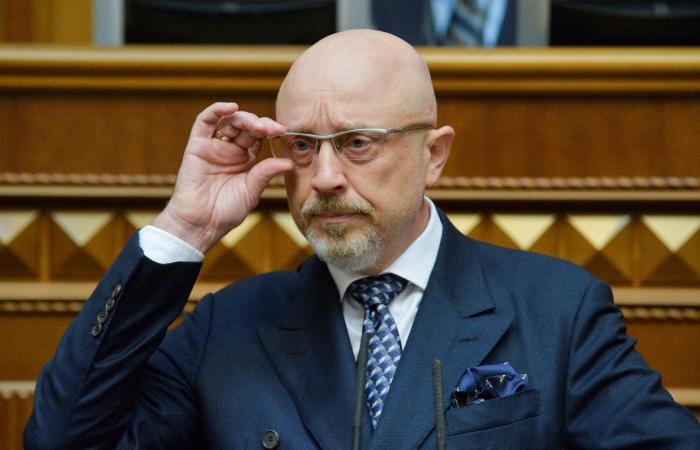
A day before Elkin’s exchange with Korniychuk, Zelensky appeared at the third annual Kiev Jewish Forum, sponsored by the Jewish Confederation of Ukraine, a nation-wide community body. Directing his comments at Israel, Zelensky said, “We know what it’s like not to have our own state. We know what it means to defend one’s state and land with weapons at hand, at the cost of our own lives.”
“Both Ukrainians and Jews value freedom, and they work equally for the future of our states to become to our liking, and not the future which others want for us,” he added. “Israel is often an example for Ukraine.”
Ukraine’s prime minister, Denys Shmyhal, has thanked Israel for supporting his country. “I’d like to give Israel special thanks for its ongoing support of Ukraine’s sovereignty and territorial independence,” he said. And in a reference to the buildup of Russian forces on its border, Shmyhal said, “Ukraine is currently fighting for its independence.”
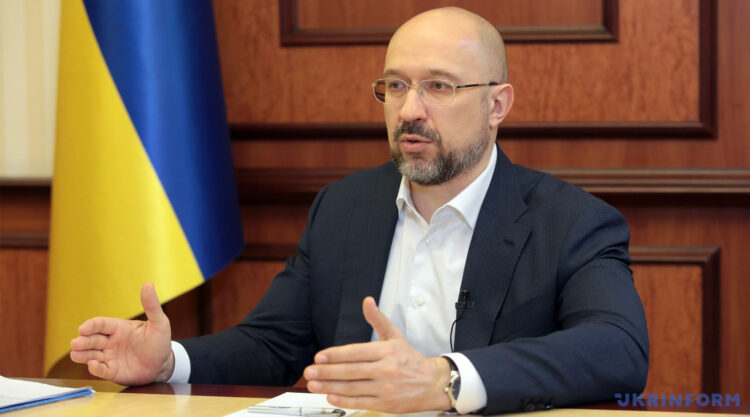
Israel and Ukraine have engaged in a measure of security cooperation, and Israel most certainly should maintain cordial bilateral ties with Ukraine going forward. But Israel has a greater vested interest in preserving its positive relationship with Russia, which could be upended if Israel were to sell military supplies to Ukraine.
Israel needs Moscow’s cooperation in its ongoing air campaign to curtail or destroy Iran’s military entrenchment in Syria, Russia’s chief Arab ally. Israel and Russia abide by a deconfliction agreement in Syria which prevents accidental clashes between Israeli and Russian aircraft. This pact has been in existence since 2015, when Russia beefed up its military contingent in Syria, which has been embroiled in a civil war for the past decade. It could be jeopardized if Israel tilts toward Ukraine.
Israel, therefore, should remain unambiguously neutral in Russia’s dispute with Ukraine. Israel cannot afford to alienate Russia to a degree that would enable Iran, its deadliest enemy, to expand its military infrastructure in Syria.
If Ukraine wants to recognize Jerusalem as Israel’s capital, fine. But Israel should not have to repay Kiev by needlessly embroiling itself in Ukraine’s conflict with Russia.
In broader terms, the brewing conflict in eastern Ukraine should be deescalated as soon as possible.
Russia should withdraw its troops from the border and stop meddling in Ukraine’s internal affairs through its support of pro-Russian rebels.
Ukraine should renounce its ambition to join NATO and hew to neutrality in its foreign policy.
These steps, if properly coordinated, would be in everyone’s interest.
